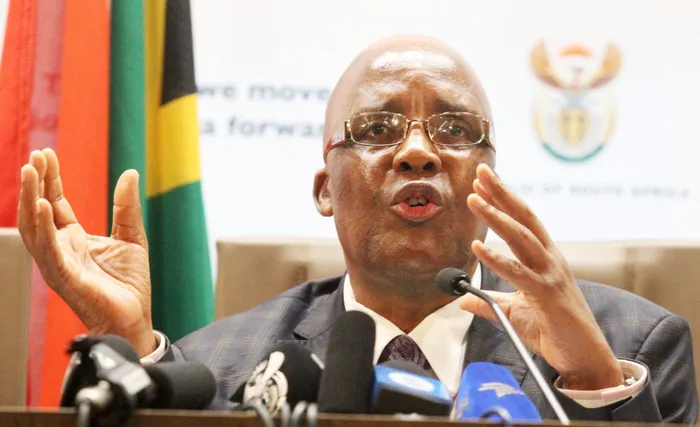
Health Minister, Dr Aaron Motsoaledi.
Image: Jacques Naude/Independent Media
WHY Tembisa Hospital?
That’s the pertinent question Health Minister Dr Aaron Motswaledi wants answered after the Special Investigative Unit report found that more than R2 billion was siphoned off the hospital through corruption and fraudulent contracts.
The SIU report also found that three companies allegedly linked to controversial businessman Vusi “Cat” Matlala and 41 others said to be linked to Morgan Maumela allegedly scored big from the more than R2 billion that was looted from Tembisa Hospital.
Motsoaledi’s frustration with how these schemes managed to operate and fleece so much money from the public purse is understandable.
However, it was not unexpected. Worse still when the fact is that it was only discovered after the assassination of whistleblower Babita Doekaran, who lifted the lid on suspicious payments of R850 million, before she was murdered in 2021.
The minister does not need to look far for answers on why Tembisa Hospital was the target. In fact, the looting at Tembisa Hospital resembles a pattern that has come to categorise how public institutions have become personal banks for politically connected individuals.
A case in point was during the looting spree during the Covid-19 pandemic, where money meant to purchase PPE found itself in the hands of individuals owning carwashes and salons.
It was at the height of the pandemic that we reported on senior government officials and their friends scoring tenders worth billions of rands through companies established on the eve of Covid-19 being declared a national emergency.
Until now, very few if any of those individuals have had to account for stealing from the public. The continued lack of accountability set the tone for what has unfolded at Tembisa Hospital and other public facilities.
This is certainly not the first nor the last hospital or public entity that will enrich politicians and their friends so long as no one is locked behind bars. It’s not a question of if, but when.
Doekaran and many other whistleblowers who have had to pay the price for exposing malfeasance in the public sector must be turning in their graves.
Cape Times
Related Topics: